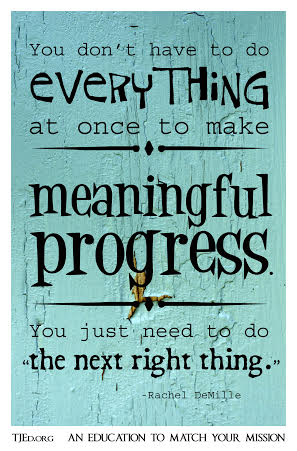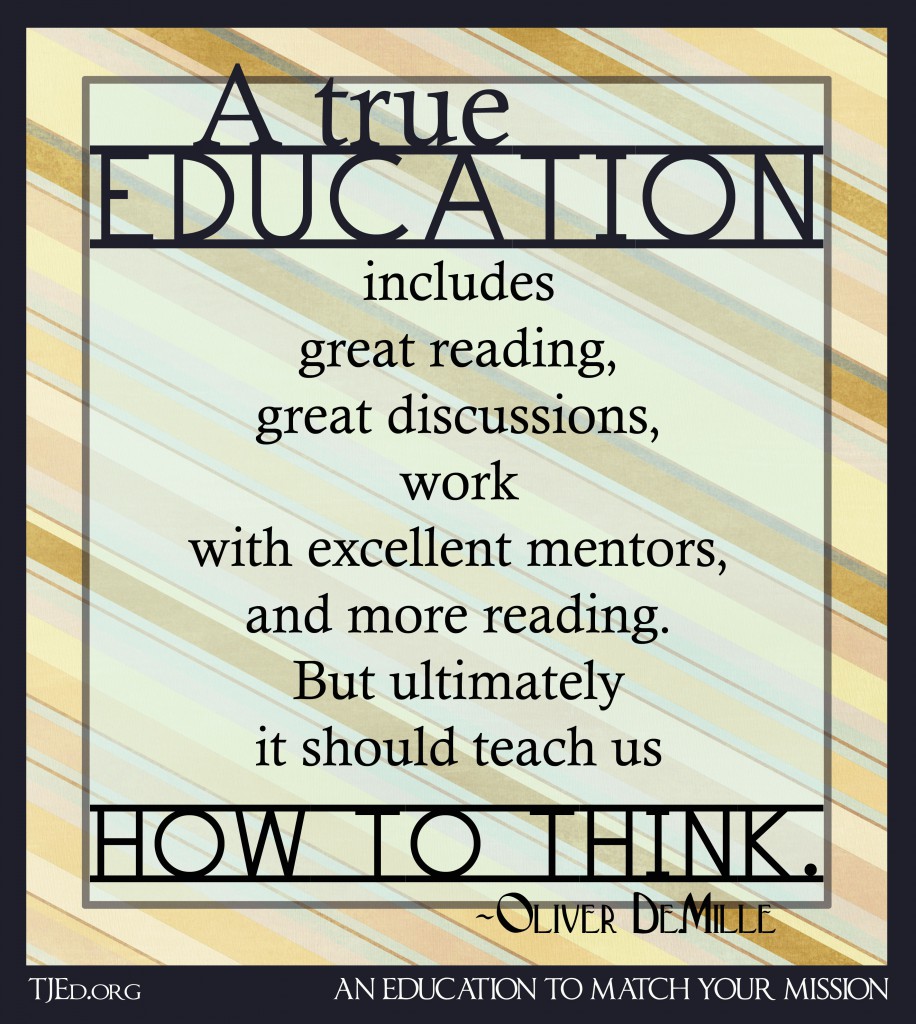The Goal
 Getting the simple things right can be really hard. But when you get them right, everything else thrives and flourishes—in almost every arena or endeavor.
Getting the simple things right can be really hard. But when you get them right, everything else thrives and flourishes—in almost every arena or endeavor.
That’s worth repeating. It can be difficult to get “the simple things” right.
This is true in relationships, nutrition, government, etc. And it’s definitely true in education. Or great parenting.
But however challenging it is, this is our goal. It’s the ideal:
To get the simple things right!
Parents who focus on this, even though most of us fall short over and over, usually see the best results. In contrast, isn’t it interesting that so many educational systems and programs that emphasize complex things end up mediocre?
Focus on the simple things. The things that really matter.
Specifically: Reading. Discussing. Learning. Thinking. Applying.
If your children learn how to learn—really, truly, deeply learn—you will have accomplished something great. If they also learn how to think—creatively, independently, deeply think—and effectively apply what they learn and think, you will have mastered education.
The Answer
 Think about those words: “You will have mastered education.” But nobody ever does this unless they focus on the simple things.
Think about those words: “You will have mastered education.” But nobody ever does this unless they focus on the simple things.
The opposite is also true. Show us a school where less than 90 percent of the students learn to passionately and consistently learn, think, and apply—and truly love learning and thinking so much that they keep doing these things long after they care about grades or assignments—and we’ll show you a failing school.
That’s a high bar, to be sure. But every home school can exceed it, simply by mastering the simple things.
- Reading
- Discussing
- Learning
- Thinking
- Applying
The other skills (like writing, calculating, etc.) naturally follow in the course of doing these things well and consistently. But without these simple basics, great education seldom occurs.
Now for the fun part: How does a parent, any regular parent who wants to master learning and build a great home school, go about doing so? Most give up with the words “master” or “great.” What’s a parent to do?
Answer: Show Them.
It’s the oldest (and usually still the best) way of learning. Set the example. Just show them.
Remember: You, Not Them
 When was the last time your kids saw you reading? For families who use TJEd, this is probably an easy answer.
When was the last time your kids saw you reading? For families who use TJEd, this is probably an easy answer.
When was the last time your kids saw you discussing what you’ve read? Again, if you use TJEd, they’ve probably watched you discuss what you read many times—often directly with them.
(By the way, if they don’t see you reading and discussing many times a week, that’s where you want to start. Very simple. Very powerful.)
Now it gets just a bit harder: When was the last time your kids saw you learning?
Think about it. How would they even know if you’re learning? Answer: you learn, and you tell them what you learned. And where you learned it, and what you were thinking about when the learning came to you. You share what you learn, day after day after day. There is no better method of teaching. None.
When was the last time your kids saw you thinking? They see you applying things you know all the time, but when did they last watch you struggle with important ideas and experience a “Eureka!” moment?
If that’s not something your kids see you doing a lot, they probably aren’t doing it either. Again, show them.
These are the simple things. The short summary of this idea is “You, Not Them.” If you focus only on your kids’ education, you won’t show them what will give them a great education.
If you focus on your education—on truly reading, discussing, learning, thinking, and applying what you learn—you can show them how to find their own greatness. Along the way, you’ll find more of your greatness as well.
What books are you reading right now? Really thinking about, discussing, and learning from? Show your kids how you’re doing this. Week after week. Month after month. Year upon year.
As they watch you, they learn the most important educational lessons of all—what to do, and how to do it. There are no substitutes for these incredibly valuable (and simple to deliver) lessons.



































I needed this reminder. Sometimes I feel like I can’t have my kids “bothering” me during my personal study time. I feel so overwhelmed by everything I “have” to do and how behind I am that questions and pleas for help frustrate me. I need to calm down and slow down and include them in what I am doing, explain what I just read or listened instead of giving one word answers. I think that would be inspiring to them and be a relationship builder.
Great article as I’m just starting with MIC. I have been wondering how me doing what I’m doing would transfer to my kids. Until I read this article I was under the impression that it would just magically happen one day. I feel like I’ve been given a map of Tjed and I’ve been looking at it for a long time trying to understand how it works, this article shows me where to start on the map.
My challenge is the sharing. I am an introvert and do all of my processing and thinking inside. I didn’t grow up in a family that discussed things often and I don’t always know how to share what I’ve learned.
Working on it.